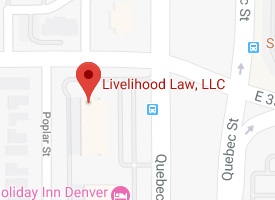
Many nurses believe that their employer’s malpractice insurance will cover them for any allegation of malpractice. But the truth is that most nurses don’t know what their employer’s malpractice insurance covers, and in a lot of cases, nurses are left without protection when malpractice insurance would help.
If you are a practicing nurse, it is very important for you to have your own malpractice insurance policy instead of relying on your employer for coverage. For instance, if there is a lawsuit for an incident that fell outside the scope of your job description, or if you and your employer are at odds over the scenario, your employer has the right to refuse to defend you. Additionally, after a resignation or termination, an employer’s policy will likely not cover you.
Why Nurses Need Their Own Malpractice Policy
The biggest reason to have malpractice insurance is that you might need to defend your license. Any accusation that you have done something wrong, can jeopardize your future as a nurse, and potentially invalidate everything you have invested into your career. If you are an independent contractor or provide professional services outside your scope of employment with a facility, individual malpractice insurance is even more important to have because there will not be the possibility for coverage under an employer’s policy.
Licensing issues can be costly to defend; the process can take a very long time, and you will want an experienced attorney at your side. The nursing board might suspend your license while they investigate, which means you won’t have your regular income to help you make ends meet. Without insurance to pay their attorney fees, most nurses do not have the financial ability to go up against the Board of Nursing, even though they know that losing their license will be a huge financial hardship.
Having Malpractice Insurance Does Not Make It More Likely That You Will Be Sued
Some people believe that carrying medical malpractice insurance will increase their risk of being sued, however this is simply untrue. Potential plaintiffs do not know whether you have insurance unless you tell them voluntarily or after a lawsuit is filed and discovery begins.
Even if you are very confident in your abilities, being sued doesn’t actually require that you made a mistake. Organizations have increasingly leaned towards a team approach to patient care. With an increase in responsibility for nurses comes a higher likelihood that something could go wrong. Nurses get sued when a patient (or their family) believes a nurse is responsible for a specific outcome, even if that belief is incorrect. If a lawsuit is eventually found to be frivolous or misplaced, a nurse who was unreasonably sued would still be faced with the expense of defending the claims.
While doctors do see lawsuits at a higher rate, recently there has been an increase in nurses being sued. Hospitals and other employers oftentimes do not cover nurses in their malpractice insurance leaving a gap when an incident occurs. Moreover, if a facility’s insurance does cover the nurse and an incident does occur, it is more likely that the insurance carrier will be looking out for the facility rather than the individuals involved.
Don’t Wait Until It’s Too Late
If you don’t have insurance to protect your license, start shopping for a policy. Nurses seeking malpractice insurance should look for plans that include occurrence-based coverage as well as claims-made coverage. Occurrence-based coverage is a lifetime plan that covers incidents that occur no matter when you’re working or where you’re working, sometimes even into retirement so long as the incident occurred while insured. Claims coverage protects the nurse during the life of the policy unless tail coverage is purchased. Occurrence-based coverage is more expensive, but it is overall the best policy.
Livelihood Law, LLC helps licensed professionals, including nurses, when their livelihood is threatened. Please contact us if you are interested in a consultation.


